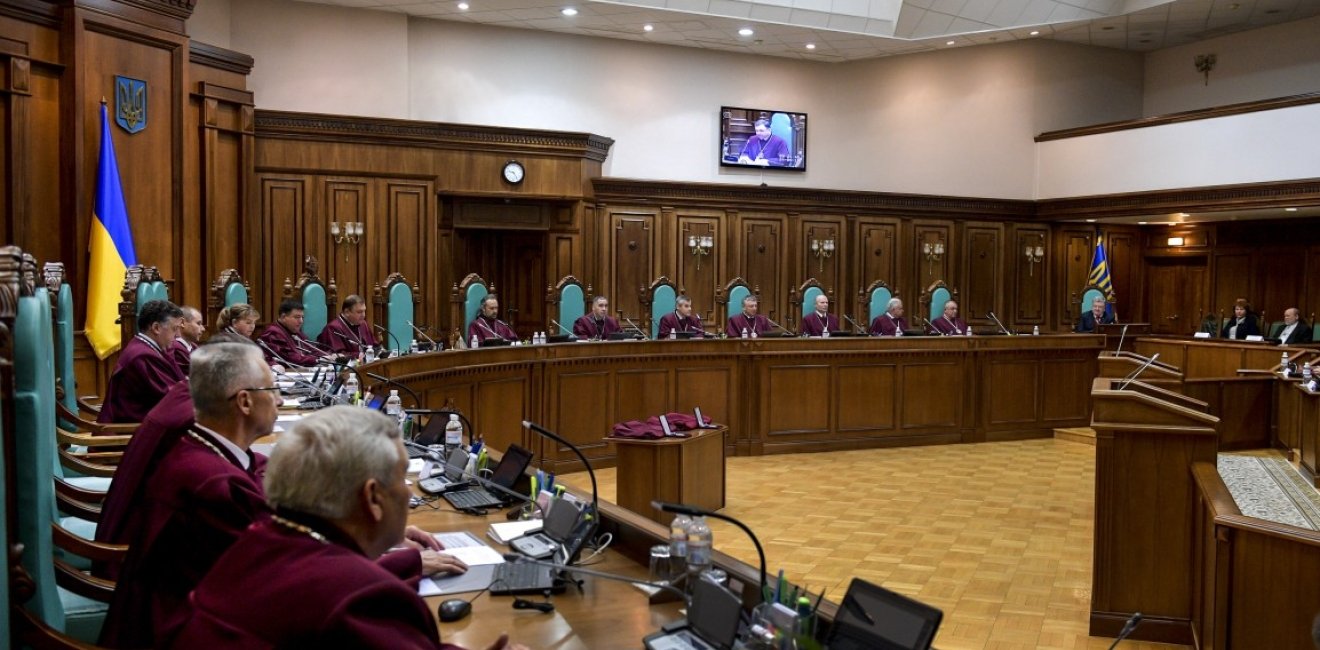
A blog of the Kennan Institute
BY YEVHEN ZAKHAROV
On June 20, 2019, the Constitutional Court of Ukraine (CCU) decided that President Zelenskyy’s May 20 decree dismissing parliament and calling for snap elections was constitutional. A majority of eleven judges voted for this decision, while five judges opposed it. Thus the early parliamentary elections got a green light and are scheduled for July 21 instead of October.
This CCU decision strikes me as cowardly and legally deficient. The CCU decided not to review the case essentially, did not present legal arguments for its decision, and did not evaluate the legal positions of the parties for and against the president’s decree. My colleagues at the Centre of Policy and Legal Reform and the Kharkiv Human Rights Protection Group (both Ukrainian think tanks) published several amicus curiae papers on the matter as early as the beginning of June. We hoped that these materials would help the CCU better address the facts in the case.
We suggested several substantive arguments and approaches.
The report from the Centre of Policy and Legal Reform ("Report") reviewed the issue of a ruling coalition. According to Ukraine’s constitution, the government is created from a coalition of factions. Article 83 stipulates that the coalition can change its membership or can be reconfigured. This was the case with the ruling coalition created in November 2014 in Ukraine. The authors pointed out that the legal fact of the termination of this coalition was established only on May 17, 2019, when the People’s Front declared it was withdrawing from the coalition. (This report may have been the first legally meaningful document on the absence of a coalition.) Thus the Verkhovna Rada had one month to create a new majority and a new coalition. Had it been unsuccessful in this attempt, the president would then have had opportunity under the constitution to dismiss parliament beginning June 17. Thus, the report concluded, the presidential decree dismissing the Verkhovna Rada was unconstitutional.
The second paper was written by Vsevolod Rechytsky, a Ukrainian expert in constitutional law. Rechytsky argued that a governing coalition exists as long as it can put forward candidates for the cabinet of ministers and successfully votes for their appointment in the Rada. Absent this functionality—according to the Ukrainian constitution—a coalition does not exist. So, if there is a ministerial position that remains unfilled for one month or if there is no cabinet for more than two months, legal grounds exist to declare the coalition terminated. A month after this legal fact is established, the president has the right to dismiss parliament. Since the positions of two ministers, the minister of public health and the minister of agrarian policies and food, had remained empty for well over a year, the president would have had grounds to dissolve parliament.
The CCU acknowledged the absence of any legal regulation pertaining to procedures to terminate a coalition of MPs in the Verkhovna Rada. Consequently there emerged a “constitutional conflict” between the president and the Rada regarding the early dismissal of parliament. The CCU observed that neither the constitution nor the Rada’s internal regulations clearly describes a way to terminate the MPs’ coalition. According to the CCU’s decision, the only solution lies in Article 5, which stipulates that the people are the only source of authority and thus the people should vote in early parliamentary elections to establish a new Rada.
At a June 24 round table dedicated to issues of Ukrainian constitutionalism, Judge Viktor Kolesnyk, one of the members of the CCU, informed the participants that the CCU judges had been divided over the issue until they read Rechytsky’s paper. As Judge Kolesnyk phrased it, this paper provided the CCU judges with a “reliable lifebuoy” in their attempts to find a solution.
However, the argument that Rechytsky presented in the paper was not repeated in the CCU’s decision. In fact, the CCU’s document lacks any clear argumentation. This deficit in argumentation can be connected to a CCU practice whereby judges vote for each paragraph of the final document individually. Quite often, the argumentation paragraphs simply do not get a majority of votes and so are omitted, making the final document less than logical. Perhaps it would be better to change this practice and decide first on the legal position of the CCU, then entrust the writing of a coherent, logical document to a group of authors. Should a CCU judge disagree with that document, he or she could prepare a separate concurring or dissenting opinion laying out an alternative argument.
The author is grateful to Vsevolod Rechytsky and Dmytro Vovk for advice on the topic discussed in this article.
Author


Kennan Institute
After more than 50 years as a vital part of the Wilson Center legacy, the Kennan Institute has become an independent think tank. You can find the current website for the Kennan Institute at kennaninstitute.org. Please look for future announcements about partnership activities between the Wilson Center and the Kennan Institute at Wilson Center Press Room. The Kennan Institute is the premier US center for advanced research on Eurasia and the oldest and largest regional program at the Woodrow Wilson International Center for Scholars. The Kennan Institute is committed to improving American understanding of Russia, Ukraine, Central Asia, the South Caucasus, and the surrounding region through research and exchange. Read more

Explore More in Focus Ukraine
Browse Focus Ukraine
Talking to the Dead to Heal the Living

Ukrainian Issue in Polish Elections


